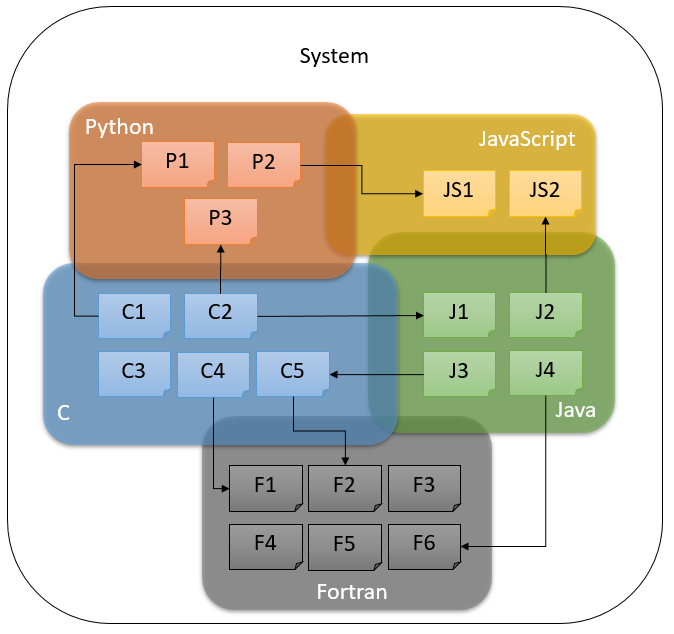
Difference: FRCVLabMLSA (2 vs. 3)
Revision 32016-07-27 - BrunoVieiro
| Line: 1 to 1 | ||||||||
|---|---|---|---|---|---|---|---|---|
| ||||||||
| Line: 6 to 6 | ||||||||
| The Multi-Lingual Static Analysis (MLSA, pronounced Melissa for convenience) is a tool that analyzes software that is written in multiple languages and in which the languages call each other. The objective is to provide open-source tools that help analyze the way multilingual code inter operates to address security issues, software design and refactoring, efficiency and correctness. The first step in the project is to address multilingual call graphs for C/C++, Java, Javascript and Fortran. | ||||||||
| Added: | ||||||||
| > > | ||||||||
 | ||||||||
| Changed: | ||||||||
| < < | Figure 1: Multilingual System | |||||||
| > > | ||||||||
| The first tool set produced in this project reviews function (procedure) calls within source code. It generates a call graph in csv/graphviz format with formatted information about function calls and their arguments. The tool is currently capable of analyzing programs in C and in Python, and in which a C program calls Python code through the python.h interface. The result in all cases is a call graph that includes procedures in both languages showing their mutual call relationships. We are building up a database of multilingual code and evaluating the performance of this first version. Immediate extensions include extending how much of the python.h interface can be handled by the tool. At the moment only the “SimpleFile” interface is handled. The next step is handling mutual C/Python calls. | ||||||||
| Changed: | ||||||||
| < < | More | |||||||
| > > | More Details | |||||||
| System Requirements | ||||||||
| Line: 23 to 22 | ||||||||
| Execution | ||||||||
| Changed: | ||||||||
| < < | Process Description | |||||||
| > > | How does it work? | |||||||
| Changed: | ||||||||
| < < | Known Issues | |||||||
| > > | Known Issues for Version 0.1 | |||||||
Permissions | ||||||||
View topic | History: r15 < r14 < r13 < r12 | More topic actions...
Ideas, requests, problems regarding TWiki? Send feedback